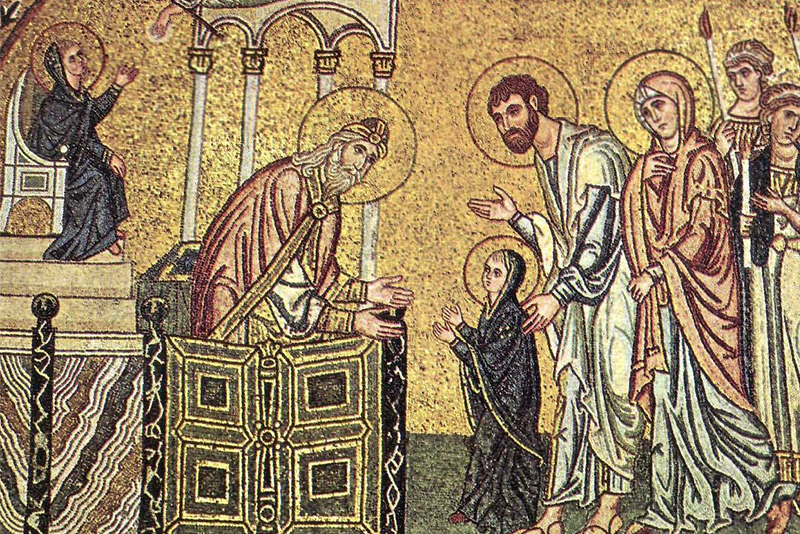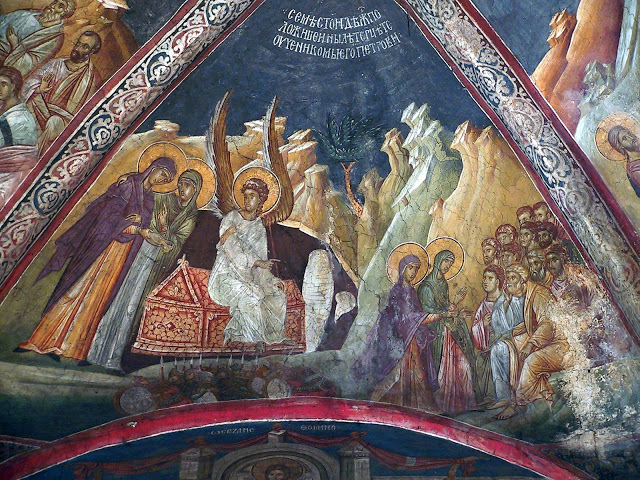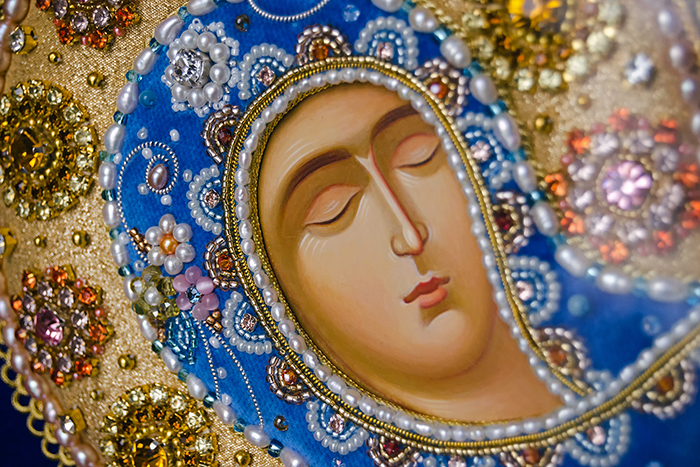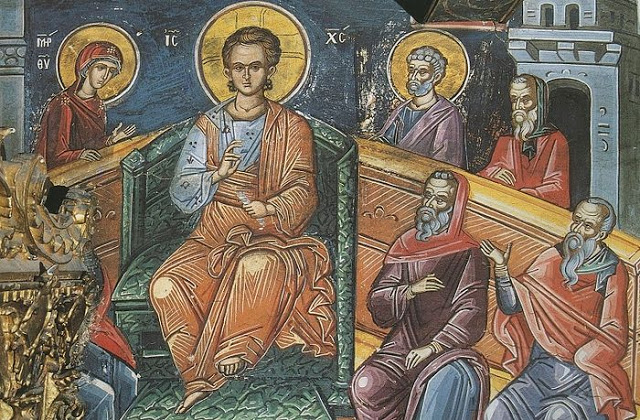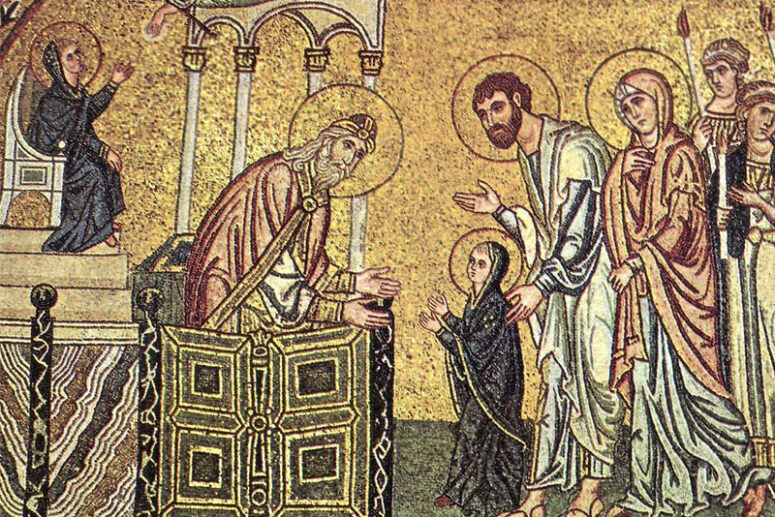
“I am a Christian – believe it or not. God helps me all the time. But I do not go to Church, as I do not need intermediaries between me and Him. Correct me if I am wrong, but it seems to me that the church traditions and rites mask the simple fact that the Church is by its nature a feudal institution grounded in oppression, and should either be reformed or closed down.”
“In Christianity, a woman is like a second-class citizen,” claim scores of unbelieving champions of justice at Church. Recently, Priest Alexander Kruglov had a conversation with one of the proponents of such views. Here is his response.
The Feast of the Entrance of the Theotokos to the Holy Temple is one with a rich tradition. We find references to it in the Protoevangelium of James and the Gospel of Pseudo-Matthew. It is mentioned in some of the most outstanding commentaries of the Holy Fathers and relaid in liturgical texts and children’s books.
I raised the theme of this feast in my conversation with a young woman. She was one of many people who like to read about the mysteries of the universe and secrets of occult spirituality, imagine that they know all about the Church without ever coming to a service and like to pick a fight with a priest.
“I am a Christian – believe it or not,” she declared. “God helps me all the time. But I do not go to Сhurch – I need no intermediaries between me and Him. Correct me if I am wrong, but it seems to me that the church traditions and rites mask the simple fact that the Church is by its nature a feudal institution grounded in the oppression of the human person; as such, it should either be reformed or closed.”
“Oppression of the human person? What kind of person, may I ask?” I responded.
“Any person! Anyone. Denigration of women, for example,” she ranted.
“Let me guess… Has someone been rude to you for coming to church without a headscarf or in jeans? “Or maybe you have you been reading literature about the holy fathers who supposedly deliberated at one of the ecumenical councils of a woman had a soul?”
“How do you know?” she asked, with disbelief.
“There is nothing new to any of these. They are common claims against the church, a part of a well-established stereotype.
Do not misunderstand me – I condemn rudeness and incivility at Church and in all other places. Problematic human relationships are ubiquitous, and the Church is no exception. I am not condoning incivility. I am only saying that the Church is not some ebony tower. It is the mystical body of Christ, but also part and parcel of human society.
The people who pray at the Church are the same people who go on public transport and stand in line at shops and public places, and our everyday relationship problems at church are a subset of the same problems that permeate the broader society. If a bus conductor or a nurse at a clinic ave been rude to you, does it mean that we should shut down all the clinics or eliminate public transport?
Concerning the claims about the denigration of women and human oppression, let me address them in light of the forthcoming feast of the Entrance of the Most-Holy Theotokos to the Temple. Have you heard about it?
“Yes, I read something in a book. At three years of age, Mary’s parents brought her to a temple where she would grow up. She ran up a steep ladder where the great priest welcomed her.”
“You are right.” The feast has a profound meaning. It is about human freedom and the wonderful workings of His laws. The First Priest leads a three-year-old girl into the Great Temple of Jerusalem. The women who came to the temple stayed in a designated area and were subject to strict rules and rigid procedures. But the first priest led the girl beyond that area to the temple’s Holy of Holies, where even priests could enter a few times in a year.
To the High Priest, and likewise, to Mary’s parents, the break with the established order was obvious; but at the same time, they knew it was the right thing. The great mystery of God was unravelling before their eyes. More generally, Christianity itself is grounded in the mystery of love and freedom. At the centre of this mystery is the Virgin Mary, a woman.
Paradoxically, the Lord acts to overturn the laws of the past that seemed immutable; He makes a little known woman, endowed with few rights in the New Testament world, the mother of the Son of God our Saviour. She makes real the incarnation of the Lord in flesh and blood, Who will die on the Cross like a common slave and criminal. Women are also the first to reveal to the world the news of His resurrection.
By the standards of the secular world, all of this might seem like chaos and subversion; yet from a divine perspective, these changes do not subvert the laws, but reveal their genuine meaning and brings freedom from corruption, sin and death.
The church that venerates the Holy Virgin Mary cannot denigrate the woman. At a church service on the feast day, women will likely form the majority of the worshippers. They do not come to church because of the pressure from conservative-minded priests. They follow the calling of their faith, their love of Christ and His Most-Pure Mother. The role of women in Orthodox church life is not limited to prayer and housekeeping. They teach children at Sunday schools, write religious books, assist the priests and perform multiple other essential tasks.
More generally, there are far more women than men at churches, and the lower life expectancy of men (who are more likely to die at a younger age or engage in heavy drinking) is not the only reason. At all times in Christian History, women have been more receptive to the idea of God and his presence. They accepted it in their minds and hearts, by their very nature.
Intuitively, they know the burdens of raising children and protecting them from the evil of this world. They relate like nobody else to the pains of the Mother of God who brought into the world and raised her beloved son and saw him die on the cross for us. Women are in the best position to understand God, Whom we view as the Father of His disobedient, tormented and beloved children.
I do not know if my conversation partner would come to church any time soon. That was not my aim. She may come if she wants to, if not, she has free will. But those who will turn up will venerate the Mother of God, proclaiming with the rest of our brothers and sisters, Today is the preview of the good will of God, of the preaching of the salvation of mankind. The Virgin appears in the temple of God, in anticipation proclaiming Christ to all. Let us rejoice and sing to her: Rejoice, O Divine Fulfilment of the Creator’s dispensation.”
Translated by The Catalogue of Good Deeds
Source: https://www.pravmir.ru/vvedenie-bogorodicy-vo-xram-ob-unizhenii-zhenshhiny-v-cerkvi/

